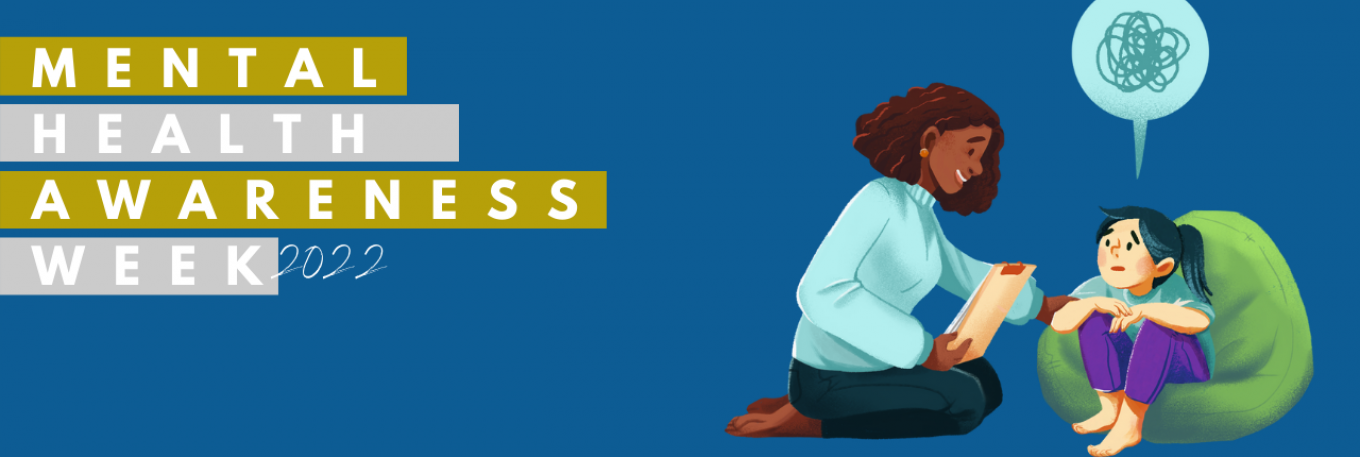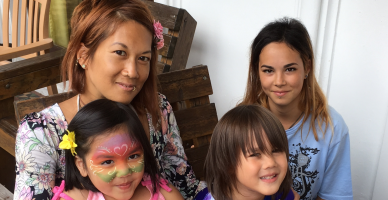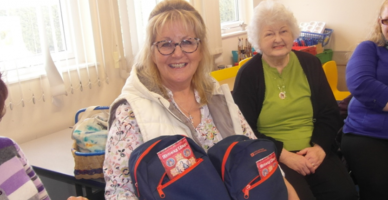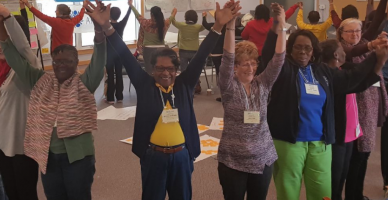You are here

Theme for 2022: Loneliness
During the outcome harvesting session for our project Metamorphosis in November 2021, Elsa, an MU member and Metamorphosis participant, shared that she had noticed someone in her church withdrawing and felt confident in taking action to help her.
People suspected that this woman had dementia. Elsa discussed this with the vicar, and began befriending this woman – visiting her and picking her up to take her to mid week communion. As their relationship developed, Elsa asked this lady to help volunteer cleaning the church. A year later, this woman who everyone suspected was suffering from dementia, shared that if it wasn’t for Elsa, she would probably be dead. She had been isolated and depressed, and was also having suicidal thoughts. Elsa’s friendship and encouragement had helped her to regain a sense of purpose.
Loneliness is the theme for this year’s Mental Health Awareness week, starting from 9th May until 15th May. The above example sheds light on the debilitating nature of isolation and loneliness, and their potential to push us towards the edge. While loneliness is a normal part of life for most, it can have a negative impact on our mental and physical health when it’s prolonged and severe. It has been found to be associated with higher risk of depression, high blood pressure, cognitive decline and increased mortality[1].
People suffering from loneliness often don’t talk about it, which backs them further into a corner with no escape. They can feel isolated from the rest of the world, unaware of the fact that there are others like them who feel exactly the same. The COVID-19 pandemic further exacerbated the impact of loneliness, as people were suddenly cut off from their loved ones for many months to come. A research done by the Mental Health Foundation found that the number of people who shared feeling lonely in Great Britain increased from 5 to 7.2% during the pandemic. Which is why now more than ever, reaching out, sharing and connecting are so important. As evidenced in the example of Elsa, friendship and community can be the light at the end of the tunnel. Mothers’ Union’s work has been significant in addressing mental health across communities.
Some of the beneficiaries of our AFIA (Away from it all) programme have shared how the holiday helped them rejuvenate and bond with their loved ones:
We wanted to let you know how grateful we were for your kind offer of allowing us the use of your van for a week. The children were delighted with their goody bags which was a really lovely surprise and very thoughtful of you. The van was superb and so clean and welcoming. It made such a difference to us having a week away and recharging our batteries. It was a well-deserved break that helped us as a family holiday again and get out and about after such a long lock down. Thank you so much for offering and allowing us this time. You will never know the difference this has made to us.
Another family shared how they had not been away for a holiday in years, and the AFIA break offered much needed respite from their daily stress and responsibilities. Crafting is another one of Mothers’ Union’s key enterprises that members of our Britain and Ireland group take a lot of interest in. Alison Fernandes, the regional development manager for the UK, said, “Not only does this produce a range of items that are then donated, but it has big mental health benefits for those doing the crafting who have a sense of purpose in life and also an opportunity to meet with others and craft together”. For some, being actively involved in a community that works towards helping others also offers a way to heal from grief; a member from Chelmsford shared that she found that knitting toys helped her after her husband committed suicide.
MU’s Prison Work programme offers love, compassion and companionship to prisoners across the world. We have found that 45% of people lose contact with their families when they go to prison, thus isolation and loneliness can impact them quite severely. We reassure them that they’re not alone and forgotten by sending cards on Christmas and Easter, running art and craft sessions, providing “coffee and chat” time for prisoners who don’t have visitors, and supplying gifts, cards and books to prisoners to give to their children when they come to visit. An MU member involved in our prison work said, “I work in the visitors centre and one of the highlights of the last few months was seeing children receive gifts and being overjoyed by them. Even better though was seeing how mums/carers were even more amazed as they didn’t expect that anyone would think of their children”. We also received a letter from a prisoner thanking us for everything we do, and for thinking of him during Christmas. For a lot of them, simply knowing that they’re being thought of, that they matter, makes all the difference.
Our members across different parts of the world work tirelessly to support their communities in their own different ways. They try to ensure that every individual feels loved and more importantly, valued. Combatting loneliness can be hard, but with the right support, it can be a journey worth taking. The Mental Health Foundation also offers some advice on how to cope with loneliness which can be found here.



